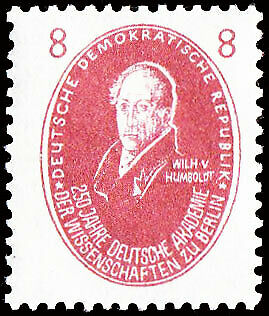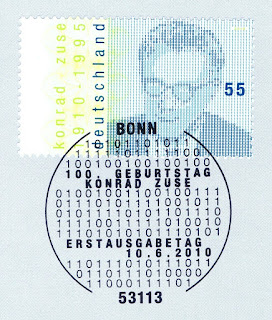Here are some events that happened on June 22nd. It could be an event or a person that died or was born on that day
1593 – Battle of Sisak: Allied Christian troops defeat the Ottomans.
The Battle of Sisak (Croatian: Bitka kod Siska; Slovene: Bitka pri Sisku; German: Schlacht bei Sissek; Turkish: Kulpa Bozgunu) was fought on 22 June 1593 between Ottoman regional forces of Telli Hasan Pasha, the military Governor (Beglerbeg) of the Eyalet of Bosnia, and a combined Christian army from the Habsburg lands, mainly Kingdom of Croatia and Inner Austria. The battle took place at Sisak, central Croatia, at the confluence of the rivers Sava and Kupa.
Earlier in 1591 and 1592 the Ottomans had twice failed to capture the Sisak fortress, but managed to take the strategically important fortress of Bihać in 1592. The Sisak fortress was again besieged by a large Ottoman force on 15 June 1593. The garrison in Sisak was commanded by Blaž Đurak and Matija Fintić, both from the Diocese of Zagreb.
An army under the supreme command of the Styrian general Ruprecht von Eggenberg was quickly assembled to break the siege. The Croatian troops were led by the Ban of Croatia, Thomas Erdődy, and major forces from the Duchy of Carniola and the Duchy of Carinthia were led by Andreas von Auersperg, nicknamed the "Carniolan Achilles". They made a surprise attack on the besieging forces on 22 June. The ensuing battle resulted in a crushing defeat for the regional Ottoman forces with Hasan killed, triggering the Long War.
Slovenian and Croatian stamps issued in 1993 to commemorate the 400 years anniversary of the battle of Sisak
1767 Born: Wilhelm von Humboldt, German philosopher, academic, and politician, Interior Minister of Prussia (d. 1835)
Friedrich Wilhelm Christian Karl Ferdinand von Humboldt (22 June 1767 – 8 April 1835) was a Prussian philosopher, linguist, government functionary, diplomat, and founder of the Humboldt University of Berlin, which was named after him in 1949 (and also after his younger brother, Alexander von Humboldt, a naturalist).
He is especially remembered as a linguist who made important contributions to the philosophy of language, ethnolinguistics and to the theory and practice of education. He made a major contribution to the development of liberalism by envisioning education as a means of realizing individual possibility rather than a way of drilling traditional ideas into youth to suit them for an already established occupation or social role. In particular, he was the architect of the Humboldtian education ideal, which was used from the beginning in Prussia as a model for its system of public education, as well as in the United States and Japan. He was elected as a member of the American Philosophical Society in 1822.
Berlin and East German stamps depicting Wilhelm von Humboldt
1910 Born: Konrad Zuse, German computer scientist and engineer, invented the Z3 computer (d. 1995)
he Z3 was a German electromechanical computer designed by Konrad Zuse. It was the world's first working programmable, fully automatic digital computer. The Z3 was built with 2,600 relays, implementing a 22-bit word length that operated at a clock frequency of about 4–5 Hz. Program code was stored on punched film. Initial values were entered manually.
The Z3 was completed in Berlin in 1941 but was not considered vital, so it was never put into everyday operation. Based on the work of Hans Georg Küssner (cf. Küssner effect) e.g. a "Program to Compute a Complex Matrix" was written and used to solve wing flutter problems. Zuse asked the German government for funding to replace the relays with fully electronic switches, but funding was denied during World War II since such development was deemed "not war-important". The original Z3 was destroyed on 21 December 1943 during an Allied bombardment of Berlin. The Z3 was originally called V3 (Versuchsmodell 3 or Experimental Model 3) but was renamed to not be confused with Germany's V-weapons. A fully functioning replica was built in 1961 by Zuse's company, Zuse KG, and is on permanent display at Deutsches Museum in Munich.
The Z3 was demonstrated in 1998 to be, in principle, Turing-complete. However, because it lacked conditional branching, the Z3 only meets this definition by speculatively computing all possible outcomes of a calculation.
Thanks to this machine and its predecessors, Konrad Zuse is often regarded as the inventor of the computer.
German stamp depicting Konrad Zuse
The Z3 was completed in Berlin in 1941 but was not considered vital, so it was never put into everyday operation. Based on the work of Hans Georg Küssner (cf. Küssner effect) e.g. a "Program to Compute a Complex Matrix" was written and used to solve wing flutter problems. Zuse asked the German government for funding to replace the relays with fully electronic switches, but funding was denied during World War II since such development was deemed "not war-important". The original Z3 was destroyed on 21 December 1943 during an Allied bombardment of Berlin. The Z3 was originally called V3 (Versuchsmodell 3 or Experimental Model 3) but was renamed to not be confused with Germany's V-weapons. A fully functioning replica was built in 1961 by Zuse's company, Zuse KG, and is on permanent display at Deutsches Museum in Munich.
The Z3 was demonstrated in 1998 to be, in principle, Turing-complete. However, because it lacked conditional branching, the Z3 only meets this definition by speculatively computing all possible outcomes of a calculation.
Thanks to this machine and its predecessors, Konrad Zuse is often regarded as the inventor of the computer.
German stamp depicting Konrad Zuse






No comments:
Post a Comment